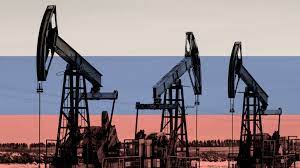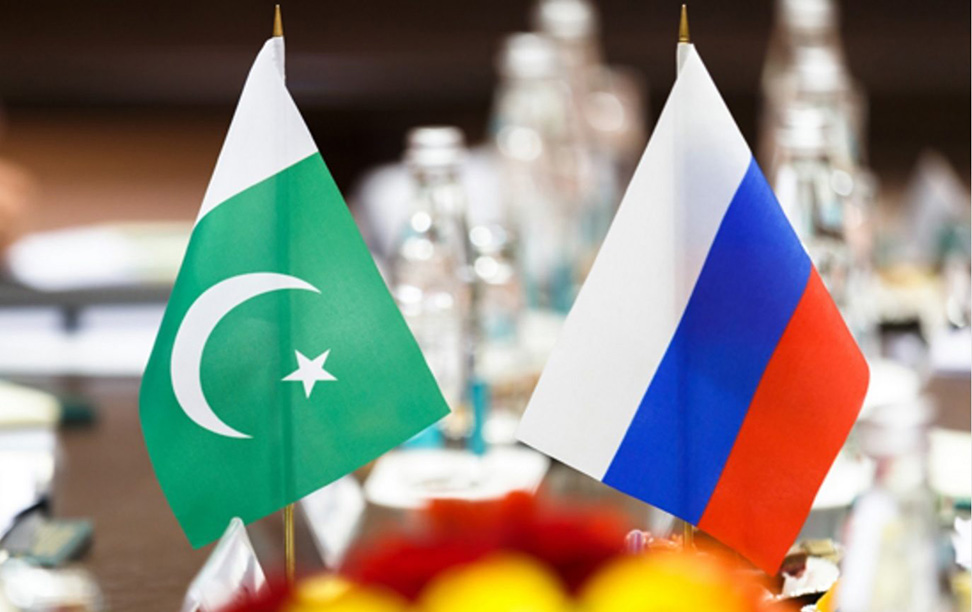Import of Russian Oil: Where Is the Discount?

Muhammad Ghazanfar Sakrani | July 16, 2023 at 01:49 PM GMT+05:00
July 16, 2023 (MLN): Since 2022 amid the Russia-Ukraine war, prices for crude oil surged. The prices which touched $0/barrel a couple of years back following Covid-19 lockdowns crossed $100/barrel in 2022, with US West Texas Intermediate (WTI) crude futures even spiking to $130.5/barrel.
The former premier Imran Khan's visit to Russia could have provided a ray of hope as per his claims. After his ouster, he time and again mentioned the ‘special discount oil deal’ between the two countries which would have provided a much-needed sigh of relief to the masses and a win-win situation for both the countries.
Nonetheless, after a dilly dally of one year, the country welcomed Russian shipments, but this time ‘without any special discount'.
On June 12, 2023, the country received its first shipment of Russian crude under the discounted deal. The cargo carrying 45,000 metric tonnes of crude oil was expected by the public to decelerate the fuel prices.
The incumbents also claimed to receive special discounts, though Russia refuted such claims about any preferential treatment. Since URAL now has many buyers, there is no need for Russia to give any special discounts as it provided a year back to countries like India. Thus, the country is receiving the same discount as other buyers.
As per media reports, the international market URAL DAP (Delivery at port) price hovers around $57/barrel with light crude DAP price from Aramco standing at $80 barrel. The former cost the country almost $70/barrel including a shipping cost of $12-13/barrel.
This translates into a saving of $7-8 million/100,000 tonnes compared to Middle Eastern oil. In PKR terms, the benefit translates to around Rs1-2/liter, which doesn't even make for a 1% reduction. In future if the prices of Middle Eastern crude oil decline further in the international market, the benefit may further shrink.
The deal however permits the Pakistani authorities to make payments in yuan rather than in dollars, which the country is already starving for.
Despite the discounted oil imports, the country is not able to capitalize on it due to its outdated refineries. The five refineries of the country lack new investment and possess old technologies which act as a significant hindrance to pass on the benefit of discounted price to end consumers. Currently, Pakistan Refinery Limited (PRL) is refining URAL, however, it processes more furnace oil than diesel and petrol, thanks to its outdated technology. The crude processing capacity of PRL also remains at 50,000bpd.
Moreover, if the country had entered the deal a year back when Russia was open for special discounts and international oil prices were above $100/barrel, the benefits could have been profound.
In order to benefit from URAL in the long run, the country needs approval on the refining policy to upgrade the existing outdated technology in the next 4 years. The brownfield investment policy will provide much-needed support to the refineries to upgrade their processing capacities adhering to environmental protocols.
State-of-the-art deep conversion refineries should be facilitated by the government to reap the full benefits of URAL processing in the long run. The country also needs to elevate the import volume from Russia once the refineries have been updated as the first shipment covers just 2% of the monthly domestic needs of the country.
Crude oil imports make up almost 25% of the total import bill, so every penny saved counts.
Had the country entered into an oil deal with Russia a year back, the cost savings would have been substantial compared to the current savings.
However, the refining capacity remains a matter of concern which needs to be addressed at the earliest.
Copyright Mettis Link News
Related News
| Name | Price/Vol | %Chg/NChg |
|---|---|---|
| KSE100 | 134,299.77 290.06M |
0.39% 517.42 |
| ALLSHR | 84,018.16 764.12M |
0.48% 402.35 |
| KSE30 | 40,814.29 132.59M |
0.33% 132.52 |
| KMI30 | 192,589.16 116.24M |
0.49% 948.28 |
| KMIALLSHR | 56,072.25 387.69M |
0.32% 180.74 |
| BKTi | 36,971.75 19.46M |
-0.05% -16.94 |
| OGTi | 28,240.28 6.19M |
0.21% 58.78 |
| Symbol | Bid/Ask | High/Low |
|---|
| Name | Last | High/Low | Chg/%Chg |
|---|---|---|---|
| BITCOIN FUTURES | 118,140.00 | 119,450.00 115,635.00 |
4270.00 3.75% |
| BRENT CRUDE | 70.63 | 70.71 68.55 |
1.99 2.90% |
| RICHARDS BAY COAL MONTHLY | 97.50 | 0.00 0.00 |
1.10 1.14% |
| ROTTERDAM COAL MONTHLY | 108.75 | 108.75 108.75 |
0.40 0.37% |
| USD RBD PALM OLEIN | 998.50 | 998.50 998.50 |
0.00 0.00% |
| CRUDE OIL - WTI | 68.75 | 68.77 66.50 |
2.18 3.27% |
| SUGAR #11 WORLD | 16.56 | 16.60 16.20 |
0.30 1.85% |
Chart of the Day
Latest News
Top 5 things to watch in this week
Pakistan Stock Movers
| Name | Last | Chg/%Chg |
|---|
| Name | Last | Chg/%Chg |
|---|




 MTB Auction
MTB Auction